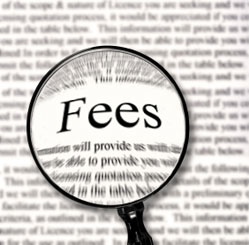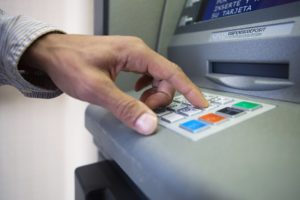 Today’s top story: Tips to save more for retirement in 2017. Also in the news: Why the key to saving may be in your head, why skipping a payment at the holidays is a bad idea, and a guide to holiday tipping.
Today’s top story: Tips to save more for retirement in 2017. Also in the news: Why the key to saving may be in your head, why skipping a payment at the holidays is a bad idea, and a guide to holiday tipping.
Retirement Anxiety? 3 Tips to Save More in 2017
Starting the new year off on the right foot.
The Key to Saving May Be in Your Head
Time to look inward.
Skip a Payment? Those Offers Are No Holiday for Your Budget
Reading the fine print.
Tips on Holiday Tipping
Who and how much?
 Today’s top story: Ten smart money moves that take only ten minutes. Also in the news: Healthy money habits to teach your kids, money management apps that automate your finances, and the power of the Get Lost Fund.
Today’s top story: Ten smart money moves that take only ten minutes. Also in the news: Healthy money habits to teach your kids, money management apps that automate your finances, and the power of the Get Lost Fund. Today’s top story: Costly financial fees you might not know you’re paying. Also in the news: Why Millennials love auto leasing, ten smart money moves that take ten minutes or less, and why nearly 7 in 10 Americans have less than $1,000 in savings.
Today’s top story: Costly financial fees you might not know you’re paying. Also in the news: Why Millennials love auto leasing, ten smart money moves that take ten minutes or less, and why nearly 7 in 10 Americans have less than $1,000 in savings. Today’s top story: How to save for 2017 and 2057 at the same time. Also in the news: What new prepaid debit card rules mean for you, life insurance strategies for families with special needs children, and the high cost of using an ATM.
Today’s top story: How to save for 2017 and 2057 at the same time. Also in the news: What new prepaid debit card rules mean for you, life insurance strategies for families with special needs children, and the high cost of using an ATM.  Today’s top story: How to tell if your 401(k) is a dud. Also in the news: How to find unclaimed property, great tax deductions for retirees, and how to sneak more savings into your budget.
Today’s top story: How to tell if your 401(k) is a dud. Also in the news: How to find unclaimed property, great tax deductions for retirees, and how to sneak more savings into your budget. Today’s top story: Key financial considerations when you live alone. Also in the news: Managing your money while you’re separated from your spouse, determining how much life insurance you really need, and a change in thinking that will help get you out of debt.
Today’s top story: Key financial considerations when you live alone. Also in the news: Managing your money while you’re separated from your spouse, determining how much life insurance you really need, and a change in thinking that will help get you out of debt. Today’s top story: How to save for college without sacrificing retirement. Also in the news: Recovering from a poor credit history, 3 ways to pay off a debt in collections, and the best savings strategies for your personality type.
Today’s top story: How to save for college without sacrificing retirement. Also in the news: Recovering from a poor credit history, 3 ways to pay off a debt in collections, and the best savings strategies for your personality type.  Today’s top story: How to save without using your savings account. Also in the news: Why you should have a separate bank account for your side jobs, the bad side to inactive credit, and how much it really costs to own a dog.
Today’s top story: How to save without using your savings account. Also in the news: Why you should have a separate bank account for your side jobs, the bad side to inactive credit, and how much it really costs to own a dog. Building wealth has gotten harder for most people in recent years. But the habits that can make you rich haven’t changed.
Building wealth has gotten harder for most people in recent years. But the habits that can make you rich haven’t changed.